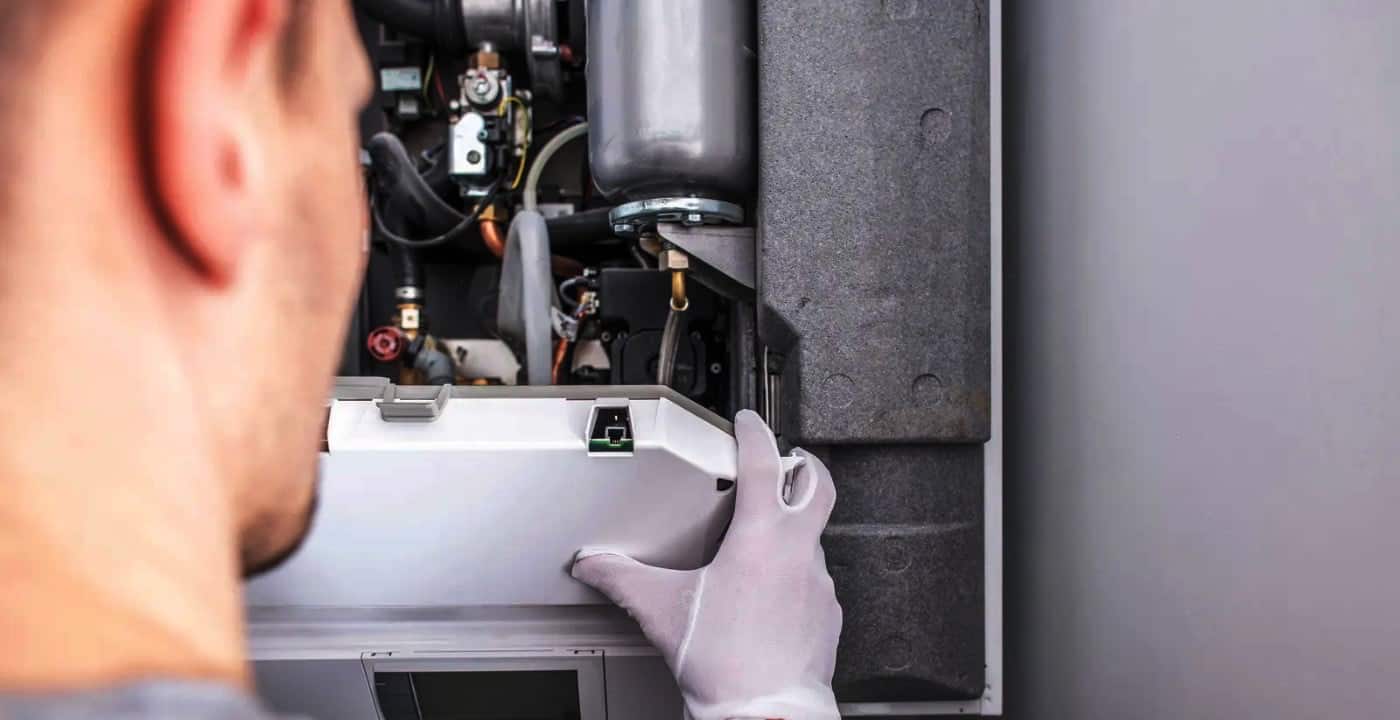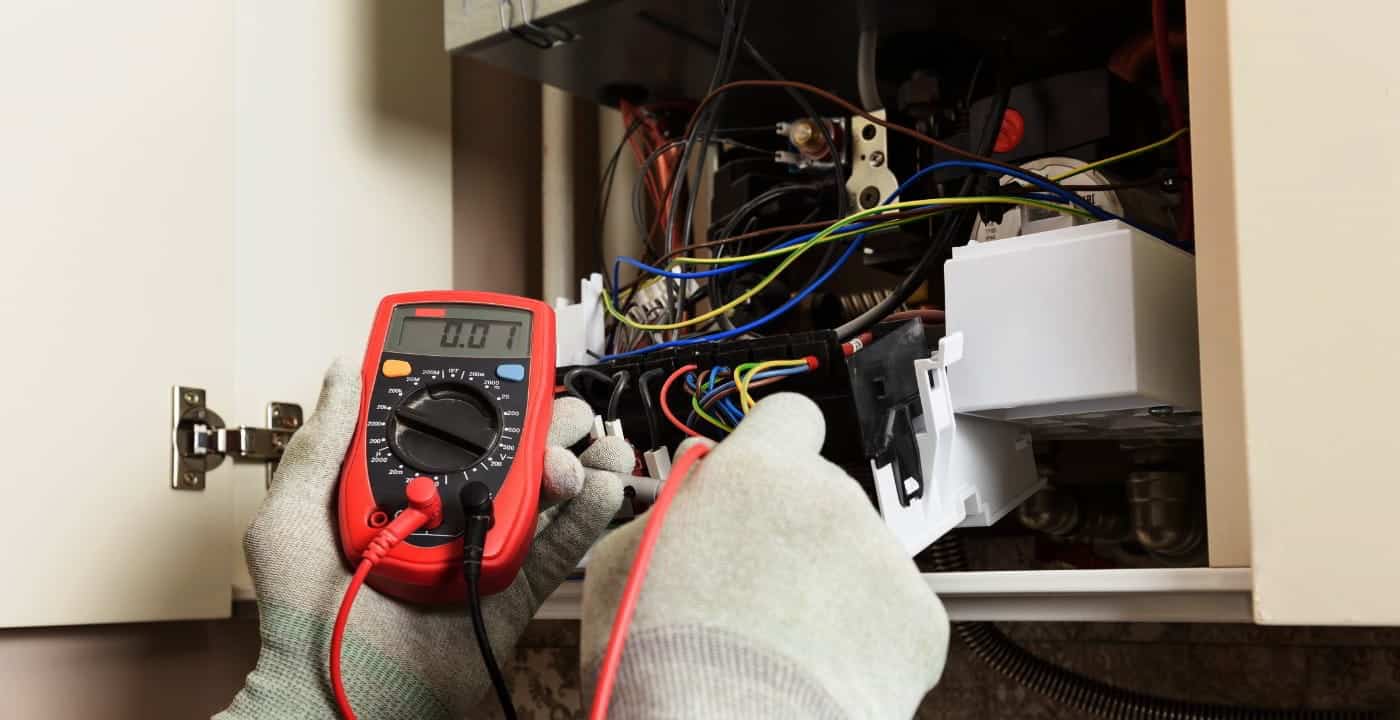Scottish landlord heating obligations
Under the Private Housing (Tenancies) (Scotland) Act 2016, landlords in Scotland have certain obligations regarding heating in rented properties.
Similar to the UK laws, having a functioning heating system, including a boiler, is a fundamental requirement for compliance.
According to the Act, landlords are required to ensure that the heating system is in proper working order and that hot water is readily available to tenants. If repairs are not feasible, a landlord must arrange for a replacement within a reasonable period of time.
While there is no specific definition of a “reasonable period of time” in the legislation, expert legal advice suggests that a property without heating and/or hot water should be addressed within 24 hours as an acceptable timeframe.
Heating requirements for Scottish landlords
Although the Private Housing (Tenancies) (Scotland) Act 2016 does not explicitly outline specific heating system requirements, other legislation addresses this matter differently in Scotland.
Since April 2019, landlords in Scotland are not allowed to rent out properties that have an Energy Performance Certificate (EPC) rating of F or G, unless they have obtained an exemption.

Furthermore, under the same legal requirements, landlords are prohibited from letting their tenants live in a “cold” home. A cold home is defined as one that cannot be maintained at a temperature between 18°C to 21°C at a reasonable cost to the occupier.
In compliance with Scottish laws, landlords are legally obligated to:
- provide adequate heating in proper working order;
- ensure that the property meets minimum insulation standards, meeting at least an EPC E rating (from 2025 new EPC legislation is to be introduced in Scotland);
- repair any broken windows and doors that may affect the temperature and heating efficiency of the property.
It’s important to note that while the general principles of landlord heating obligations are similar in the UK and Scotland, there may be specific differences in the legislation and regulations applicable to each jurisdiction. Therefore, it is always recommended to consult the relevant laws and seek professional legal advice tailored to the specific jurisdiction.
When to replace a boiler – factors to consider
- Age and condition
The age and condition of a boiler are crucial factors to consider when determining whether it needs replacing.
Generally, boilers have a lifespan of around 10 to 15 years.
If your boiler is nearing the end of its lifespan or has frequent breakdowns despite regular maintenance, it may be time to consider a replacement.
- Efficiency
Boilers are rated for efficiency using the ErP (Energy Related Products Directive) in the UK.
Since 2018 all new boilers have been required to have a minimum A rating for ErP and an efficiency of at least 92%.
- Repairs and maintenance costs
If your boiler requires frequent repairs or the cost of repairs becomes too high, it may be more cost-effective to replace the boiler altogether.
Continually investing in repairs can add up over time, making a new boiler a more financially viable option.

- Safety concerns
Older boilers may pose safety risks due to outdated technology or worn-out components.
If you have concerns about the safety of your boiler, it’s crucial to address them promptly to protect your tenants and comply with legal obligations.
Likewise for tenants, you must immediately inform the landlord if you have concerns with the safety of the boiler.
How much will it cost as a landlord to replace my boiler?
Determining the cost of a new boiler depends on various factors such as the type of home, energy supply, number of bathrooms, brand and whether it’s a replacement or a conversion.
The cost of boilers in the UK ranges from £700 to £2,500 for a combi boiler, £800 to £2,000 for a system boiler and £1,000 to £2,500 for a conventional boiler.
The installation costs additionally vary from £500 to £2,000. Brands like Glow-worm, Ideal Heating, and Vaillant offer boilers at different price points.
Converting a conventional or system boiler to a combi boiler is a more complex and costly process, but may be a better choice in certain cases.
Regular boiler servicing
Regular servicing of your boiler is essential to ensure its proper functioning, improve efficiency and comply with legal requirements.
A landlord must have the boiler serviced annually by a Gas Safe registered engineer.
A thorough service will identify any potential issues, prevent breakdowns and prolong the lifespan of the boiler.
If a landlord refuses to have the boiler serviced, tenants should seek advice from their local council.
Tenants’ rights and no heating
Tenants have the right to expect hot water and heating in their rented properties.
If the boiler malfunctions or stops working, landlords are legally obligated to address the issue promptly.

The landlord should be notified immediately and reasonable steps must be taken to resolve the problem within a reasonable timeframe.
If the issue persists, tenants may be entitled to various remedies, including rent reductions or seeking legal action.
FAQs
How long does a landlord have to replace a boiler?
There is no specific timeframe mentioned in the law for replacing a boiler.
However, landlords should prioritise prompt action if a boiler becomes faulty or inefficient.
Delaying necessary repairs or replacements can lead to legal consequences and dissatisfaction among tenants.
Can I refuse to pay rent if the boiler is broken?
In the event of a broken boiler, tenants may be entitled to a rent reduction if the lack of heating or hot water significantly impacts their living conditions.
However, completely refusing to pay rent without proper legal guidance can result in further complications.
It may seem unfair, but as a tenant you should never seek to withhold rent payments. Breaking the contractual agreement with your landlord may enable them to seek your eviction from the property.
It is advisable to communicate with the landlord or seek legal advice to resolve the issue amicably.
What happens if the landlord doesn’t fix the boiler?
If a landlord fails to address a broken or inefficient boiler, tenants can take several steps.
They can communicate the issue in writing, provide a reasonable deadline for repairs and seek legal advice if the landlord doesn’t respond or take appropriate action.
In some cases, tenants may have the right to terminate their tenancy agreement or pursue legal action for compensation.
Conclusion
As a landlord, understanding when to replace a boiler is crucial for maintaining a safe and comfortable living environment for your tenants.
By considering factors such as age, condition, efficiency and safety, you can make informed decisions about boiler replacements.
Remember to prioritise regular servicing, address issues promptly and comply with your legal obligations.
By doing so, you can provide your tenants with the heating they deserve while ensuring your property meets the necessary standards.
For tenants, you should allow for a reasonable period of time for the landlord to take the required actions to fix or repair the boiler. Always seek an amicable and equitable outcome.
If the landlord refuses to take appropriate actions, you should notify the local authorities and prepare to seek out legal advice. If you can’t find affordable legal representation, start with Citizens Advice.


